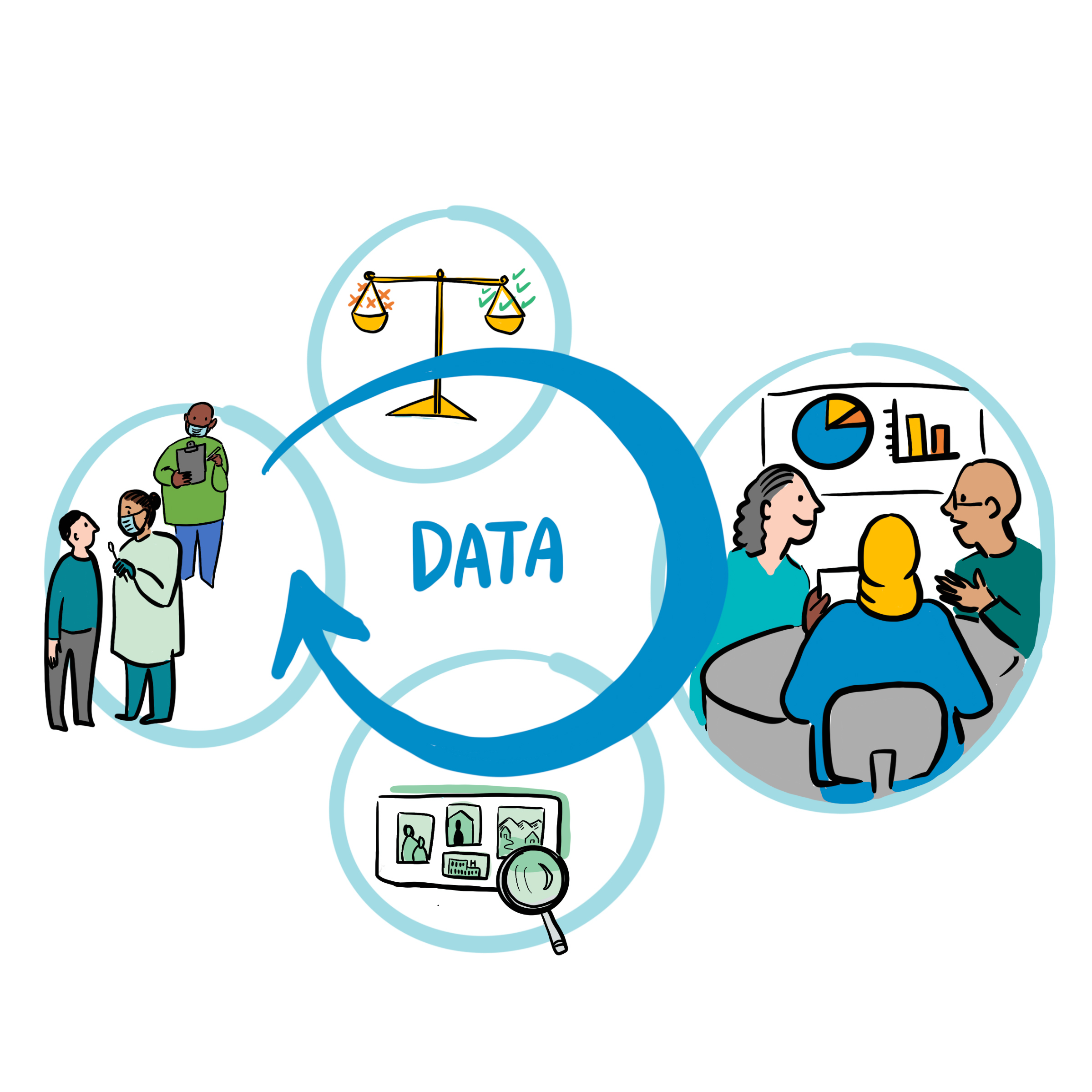Monitoring

Public health and social measures (PHSM) are integral components of government responses during health emergencies, interacting with and complementing other public health interventions. Given the multifaceted nature of PHSM decision-making, using a diverse array of data is essential to inform critical decision points. These decisions can span from determining the appropriate combinations of measures to introducing, adjusting, or phasing them out, as well as ensuring uptake and adherence, and mitigating unintended negative consequences.
It is imperative that PHSM are considered in concert with other government responses, such as medical countermeasures, as well as epidemiological patterns; public awareness, knowledge and perceptions; and impacts on health, health systems, societies and economies. These data must be carefully evaluated and integrated throughout the PHSM decision-making process to ensure that measures and their implementation are evidence-informed, context-specific and equitable.
Global guidance on monitoring PHSM
WHO’s global guidance on monitoring PHSM policies is a resource to facilitate the systematic collection and use of harmonized data during health emergencies for PHSM decision-making across countries.
The guidance details standardized approaches and actionable steps for establishing and maintaining a robust PHSM monitoring system, a taxonomy of PHSM categories, and a process for consistent and transparent data collection. The guidance facilitates the availability of context-specific and real-time PHSM data alongside other key data sets drawn on during public health events for PHSM decision making. This guidance will be accompanied by flexible and customizable online tools.
Photo credit: WHO/Sam Bradd
